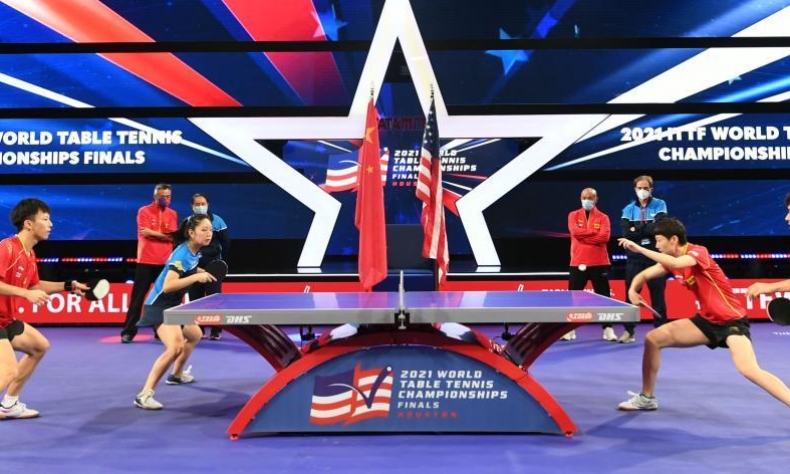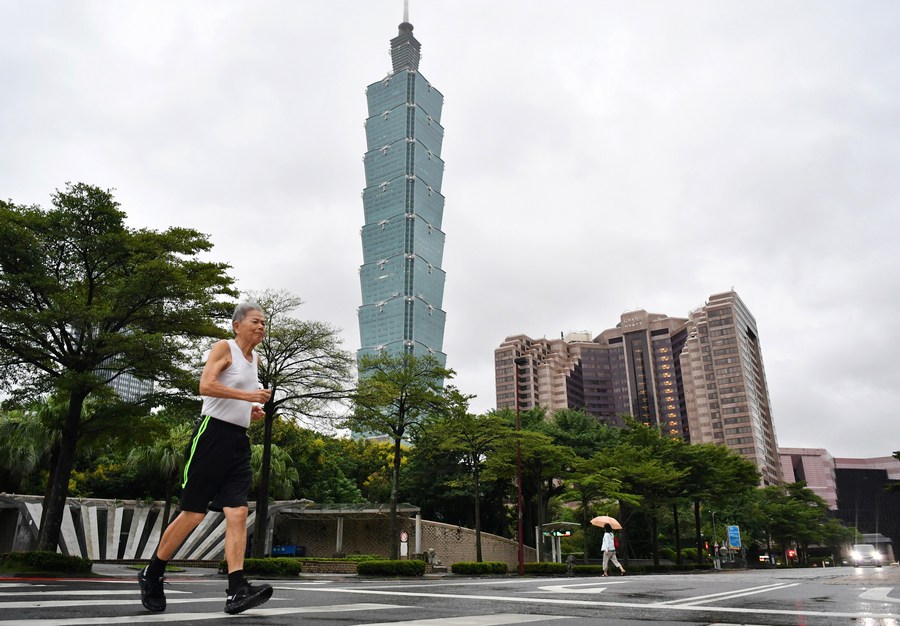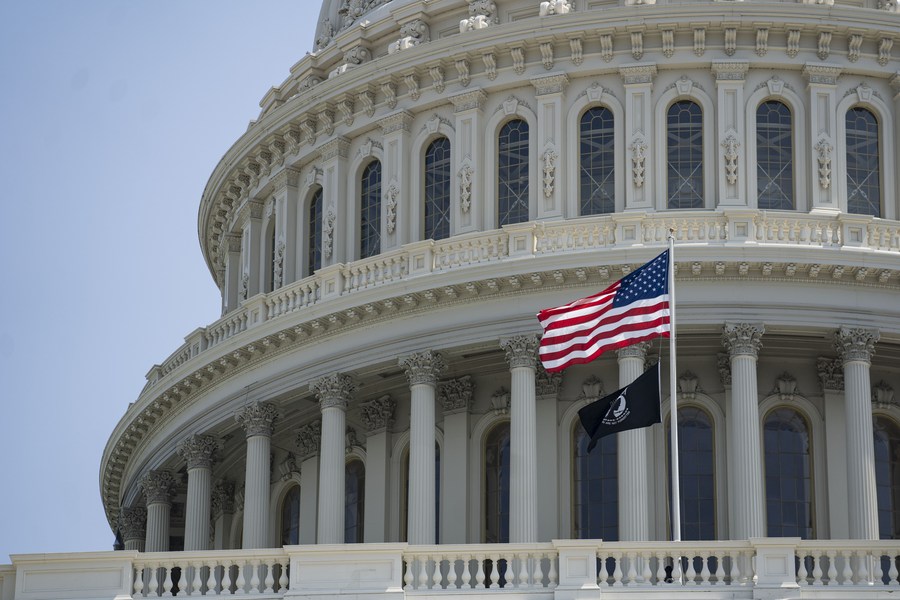How to Lessen Mistrust

Ultimately mistrust can be lessened to a degree by more communication and reinvigorating people-to-people exchanges. Hopefully, we can still imagine a restart as we emerge from this period of darkness.
The U.S. and China are the world’s two largest economies. It’s vital that these two countries have a shared vision of common prosperity and a win-win outlook, as their ties are important to global economic development and security.
However, there has been an interruption to bilateral relations because of the pandemic, protectionism and the trade war in recent years. Mistrust and insecurity have risen and so we need to work toward reconciliation.
Past and present
When Richard Nixon met Chairman Mao Zedong in Beijing in 1972, it was such a momentous event. China was very popular in the United States. Then when Deng Xiaoping came to the United States in 1979, he was received as a grand figure. It was a moment coming out of a very confrontational period that became a high point in U.S.-China relations.
Today, China’s official position remains to pursue a shared future, win-win solutions, and mutually beneficial trade. But there is mistrust in America toward China, a fear of China’s rise or alleged aggressiveness. When China says, “We don’t want a confrontational relationship,” the U.S. responds, “This is competition” or “This is a confrontation,” and dismisses China’s approach.
For China, peace and security are based on mutual respect for sovereignty and territorial integrity, mutual non-aggression, mutual non-interference in internal affairs, equality and mutual benefit, and peaceful coexistence. Commonly known as the Five Principles of Peaceful Coexistence, which were jointly initiated by China, India and Myanmar in 1954, they have really grown out of international law, specifically out of the UN Charter, Article Two, Section Four, which upholds state sovereignty.
The American view, however, is decidedly different. For the U.S., peace and security typically are based on certain normative political values coming from a liberal tradition based on notions of rights or political system. The American idea is that those aims may be achieved sometimes through intervention, even unilaterally using force to do so. Ultimately, achieving peace and security occurs through political change.

Meanwhile, the one-China policy is the bedrock of the relationship. But the U.S. becomes more aggressive on Taiwan-related issues. I think the U.S. is considering discarding the one-China policy and is riding across China’s strategic red lines. That would be catastrophic.
There is so much suspicion toward China, even in the cultural sphere. For instance, the Confucius Institutes function to bring Chinese language and culture to universities around the world. But American universities are very skeptical of accepting any money from official Chinese institutions. Consequently, those Confucius Institutes have been pushed away.
As a two-time Fulbright scholar at China Foreign Affairs University and Beijing Foreign Studies University, I was also gravely disappointed when former U.S. President Donald Trump canceled that signature American exchange program to China and also made it more difficult for Chinese students to study in the United States, which began to occur even before the pandemic.
Politicians’ stock-in-trade
U.S. politicians find a lot of value in stirring up the “China threat” and both Democrats and Republicans see that advantage. Probably, as we head to an election in less than two years, China will be a big issue again. Florida Governor and potential Republican hopeful Ron DeSantis is probably even more hostile to China than Trump was. We’ll see who is nominated as the Democratic Party candidate, whether it’s Joe Biden or somebody else. U.S. politicians are hostile to China during presidential elections, typically, and so there probably won’t be too much progress over the next two years.
In fact, there currently is not really any prominent figure that can challenge that hostile way of thinking. Nixon was such a unique figure because, as he said, he was an anti-communist. At that time, his validation of the relationship with China was enormously important. It changed the whole course of history. There doesn’t seem to be another comparable person who is willing to challenge their own political party or take a risk like that.
Frankly speaking, I am fearful that on the American side, it is becoming like an earlier era of the “red scare” of the early Cold War period. We are in a new period, and it is becoming a kind of hysteria. I am very nervous about the future of the relationship.

Misinformation prevailing
What’s worse, today there is a lot of misinformation about China in the Western media. All media stories portray China exclusively in a negative light and generally do not report China’s official statements, which are typically much milder. It is only when the Chinese side makes bold statements, which in fact is quite rare, that it gets reported.
Thus, China’s public diplomacy efforts do not impact the American public because they do not really get reported. The American media mostly reports actions, events, and incidents and then particularly frames the point in time where America and China are encountering each other. For example, events in the South China Sea, or now this balloon or issues of espionage or cyberwarfare; the reality is that China is in a weaker and typically defensive position between the two.
Yet it leads many Americans to assume the worst of China and be suspicious of everything. There is a lot of pushing on the American side. But from the American public’s view, China is pushing. The “balloon incident” exemplifies this. A really minor and probably accidental intrusion led to an escalatory military response and then all sorts of suspicions and fears of China’s balloons invading.
Unfortunately, in the American ideological sphere, both the left and the right hold hostile attitudes toward China. In the past, there were more voices favorable toward China. Now, those voices are silenced or extinguished.
According to a Gallup poll released in early March, only 15 percent of Americans hold a favorable view of China, which is a record low since Gallup started measuring American attitudes on China nearly 45 years ago.
Americans would be surprised that China’s official line advocates for common prosperity and a global community with a shared future. It would be very surprising to them because they imagine that China is both being aggressive and also rhetorically aggressive, a “wolf warrior.”
Ultimately mistrust can be lessened to a degree by more communication and reinvigorating people-to-people exchanges. Reporting by the media needs foreign correspondents based in Beijing with greater cultural and linguistic fluency and knowledge. Hopefully, we can still imagine a restart as we emerge from this period of darkness.
The author is professor of politics and director of the Asian Studies Program at California State University, Sacramento, the U.S..
 Facebook
Facebook
 Twitter
Twitter
 Linkedin
Linkedin
 Google +
Google +










